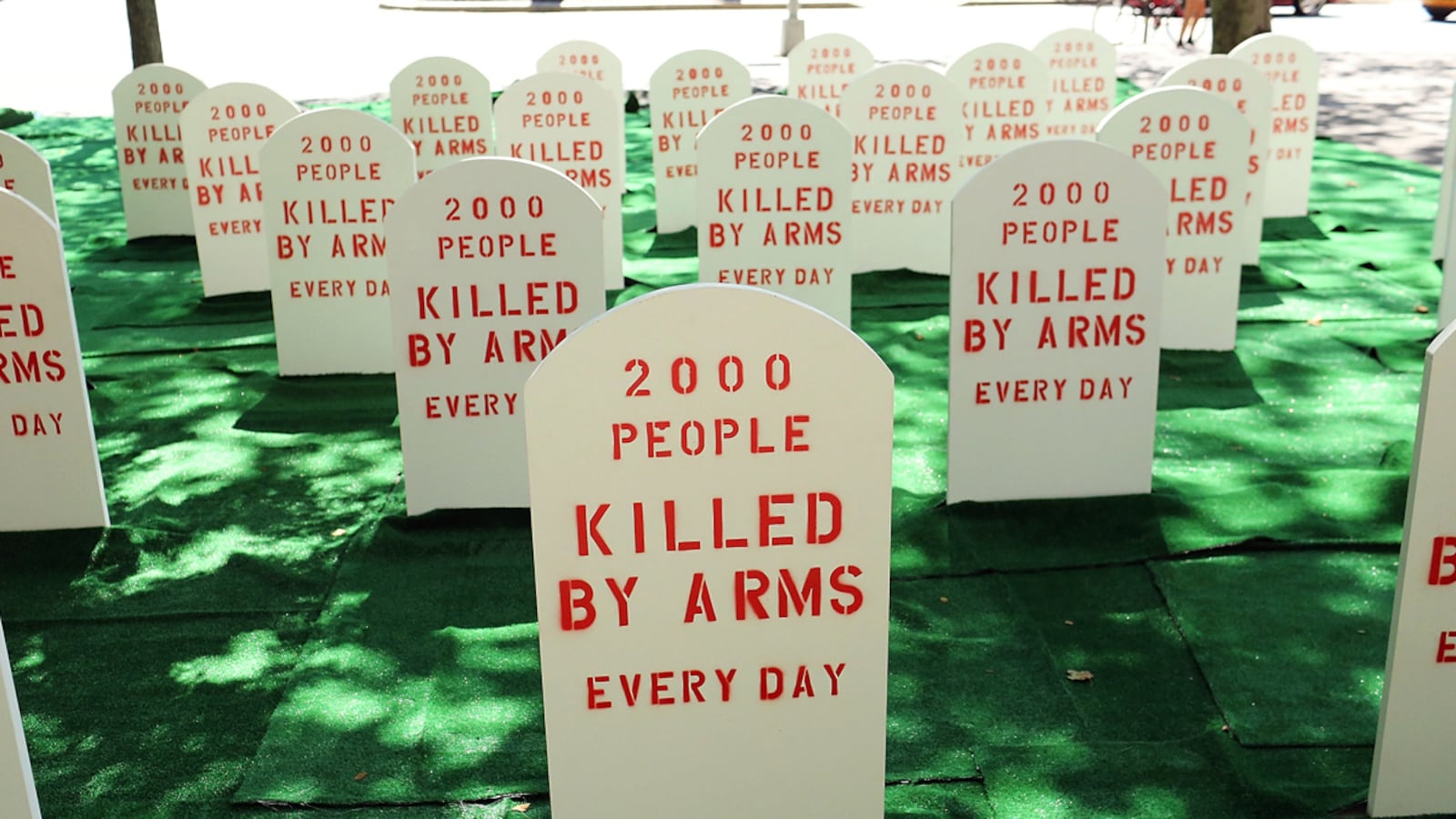In the days following the shooting in Aurora, a bipartisan consensus took hold that gun control can’t be achieved in the current political climate. The National Rifle Association is too powerful, and passing another law probably wouldn’t do much anyway to stop the mass shootings that have sadly become part of the American scene. The grassroots energy that drove the passage of the Brady bill and an assault-weapons ban in 1993 has been replaced by a sense of resignation that little can be done beyond grieving for the victims and their families.

Most polls underscore the political stagnation, so it is refreshing, or at least different, when the firm headed by Republican pollster Frank Luntz weighs into the discussion with some fascinating new data: a survey of more than 900 gun owners shows strong support for regulations that balance rights and responsibilities, according to Lowell Baker, president of Luntz’s firm. Roughly half of those polled are members of the NRA, and over half of them think that everyone who wants to buy a gun should complete a background check; most think (incorrectly) that’s already the law.
Three out of four gun owners think people on the terrorist watch list should not be allowed access to guns. More than two thirds think the police should be alerted if a gun is lost or stolen. Eight out of 10 say that a concealed weapon permit should only be issued to people who complete a training course. Seven in 10 say to get a concealed carry permit, you should be 21 years of age; 78 percent say a concealed carry permit should not be granted to anybody with a violent misdemeanor. And 82 percent favor a criminal background check.
“They’re trying to tell us through the survey that with rights come responsibilities,” says Baker. “It pisses them off when someone else abuses that right.” Granted, these are very minimal requirements–how could anybody support access to guns for people on the no-fly list? Perhaps not surprisingly, the NRA leadership does, even if a majority of its membership doesn’t, and that’s the bottom line in Luntz’s survey–that the NRA doesn’t necessarily speak for its 4 million members. Invoking the turns of phrase that are Luntz’s signature, Baker said the survey reveals “a new silent majority” neither red nor blue that resides in the middle of the electorate, where a conversation can be started around the theme, “Rights are protected and responsibilities are respected.”
Baker reported the findings at a Tuesday afternoon session at the Center for American Progress, a liberal think tank, where the panelists did their best to debunk the NRA’s mythical power and urge progressives to return to the fight. Mark Glaze with Mayors Against Illegal Guns said gun control advocates had let the issue lapse after President Clinton attributed the Democrats’ loss of Congress in 1994 to his signing gun control legislation. Then in 2000 Al Gore failed to carry his home state of Tennessee, allegedly because of the gun issue, costing him the presidency. Glaze says there were other reasons why Clinton lost, and Gore too, but the conventional wisdom since then for Democrats has been to stay away from the gun issue, that it’s a political loser.
At the same time, starting in the mid 90s, the NRA adopted a take-no-prisoners approach, rejecting every legislative compromise as putting them on the slippery slope to more comprehensive regulation. Glaze, the son of a formerly licensed gun dealer in Colorado, says, “This isn’t my father’s NRA.” The NRA’s business model, he says, is based on selling fear and paranoia. Gun ownership in America has been declining for the last 30 years from over half of households with a gun in the 70s now down to about a third. “The NRA knows this and the gun manufacturers know this,” says Glaze, “and so they’re encouraging people to increase the size of their arsenals.”
Gun sales are surging, as they have ever since President Obama took office. “It’s not millions going out and getting their first gun,” says Glaze. ”It’s people building up their arsenals.” Though Obama has done nothing to curtail access to guns, the NRA has spread the idea that if he’s reelected he will make good on his old campaign promise to renew the assault weapons ban, and worse from their perspective. Politicians are fearful of the NRA’s grassroots power, and its money, but panelist Paul Waldman, a contributing editor at The American Prospect, a liberal publication, says his study of the plast four elections reveals the organization is more bark than bite.
“It’s almost impossible to locate any impact,” says Waldman. The money they contribute is far less than other outside groups, enough to “maybe buy some doughnuts for volunteers.” He looked at 22 Senate races; the NRA lost 12, and won 10. In Pennsylvania, a pro-gun state, the NRA put $1.5 million into Republican Pat Toomey’s 2010 race; Toomey spent $17 million, dwarfing what Democrat Joe Sestak was able to spend. The NRA was one of 62 outside groups boosting Toomey, yet it gets the lion’s share of credit for his win, whether deserved or not.
Glaze’s organization represents 700 mayors, including some 80 that are Republicans. New York City Mayor Michael Bloomberg has been the most outspoken after the Aurora shooting, chiding political leaders for their timidity. Asked why the political establishment and the progressive community have been so silent on gun control, Glaze said Democrats let the infrastructure that supported the Brady bill and the Million Mom March crumble after the political defeats of 1994 and 2000. Citing President Bush’s reelection in 2004, he said, “He seemed to stand for something even if that something was not very popular, and as Democrats we’re not very good at that.” In other words, it’s not enough to blast the NRA; gun-control advocates have to step up more forcefully than they have. Acknowledging their absence from the debate is a first step.






